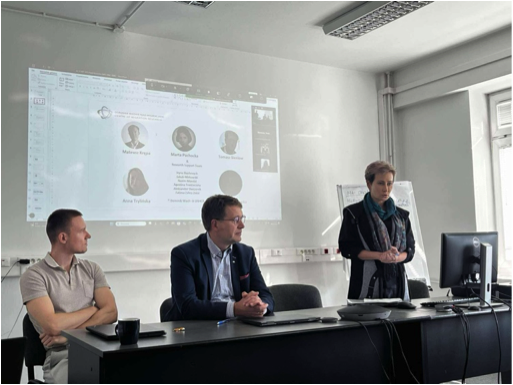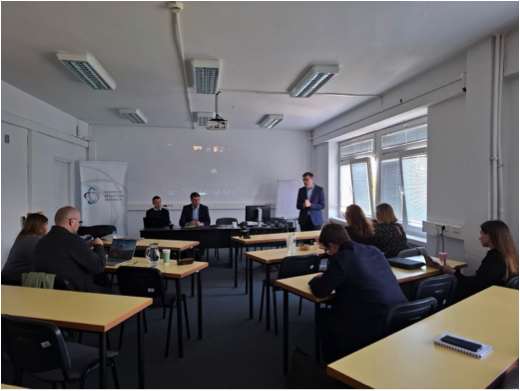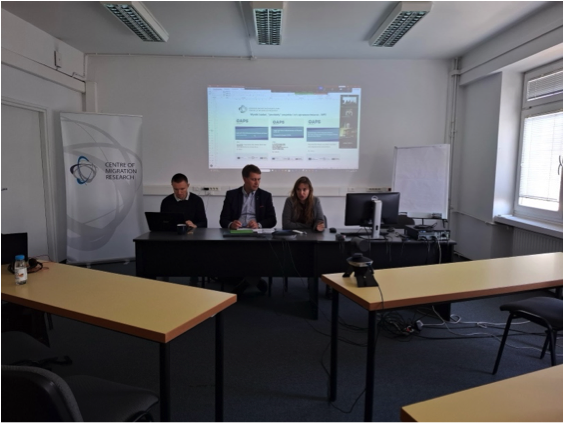Stakeholder Expert Panel in Poland Highlights Systemic Challenges in Return Policies and Migrant Protection
Part of the Horizon Europe Project “GAPs - De-centring the Study of Migrant Returns and Readmission Policies in Europe and Beyond”
Picture of the GAPs team in Poland, SEP meeting
On 8 October 2025, the Centre of Migration Research (CMR) at the University of Warsaw hosted the third and final Stakeholder Expert Panel (SEP) within the Horizon Europe project GAPs.
The meeting brought together experts from academia, public administration, and civil society to discuss the tightening of Poland’s return policy, the erosion of legal protection for migrants, and systemic inefficiencies in migration governance. The event provided a platform to situate recent developments in Poland within the wider European debates on migrant return and fundamental rights—key themes at the heart of the GAPs project.
Abuse of Return Mechanisms
Experts highlighted the frequent misuse of “immediate enforceability” of return decisions:
Deportation as a sanction has become widespread, including for minor offences or mere suspicions.
The mechanism has been used disproportionately against Ukrainian and Belarusian citizens, notably following public events such as concerts, raising concerns about discrimination and due process.
This practice increasingly replaces criminal procedures, reflecting a worrying trend of “deportation instead of sentencing.”
Systemic Challenges and the Need for Reform
The discussion underscored deep-rooted institutional weaknesses in Poland’s migration management system:
Chronic underfunding and staff shortages in key institutions such as the Border Guard, Office for Foreigners, and Voivodeship Offices.
Lack of a coherent national migration strategy, resulting in fragmented coordination between state institutions and local authorities.
Digitalisation concerns that risk excluding migrants with irregular status or limited technological access.
Participants described the persistence of these problems as “strategic ignorance”—an awareness of systemic issues that remain unaddressed for political reasons.
Proposed solutions included:
Increasing institutional capacity and coordination, including greater involvement of local governments and NGOs.
Considering a residence amnesty (abolicja pobytowa) to reduce backlogs.
Introducing temporary certificates to allow mobility during lengthy administrative proceedings.
Image: Contributions to the GAPs Project
Picture of the GAPs team in Poland, SEP meeting
The insights from the Polish SEP contribute directly to the comparative and de-centred approach of the GAPs project, which examines how return policies are shaped by political, institutional, and ethical tensions across different European and neighbouring contexts.
By documenting these national-level developments, the meeting advanced broader debates on how return governance can become more transparent, humane, and rights-based. The findings will inform GAPs’ forthcoming policy recommendations and its efforts to connect empirical research with policy dialogue at European and transnational levels.



